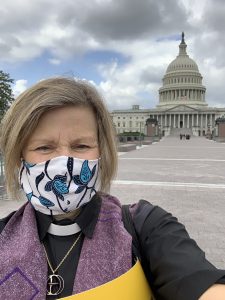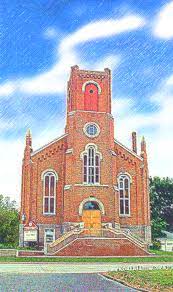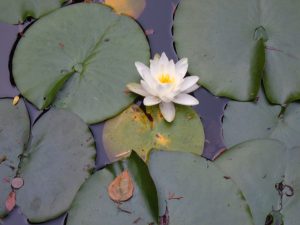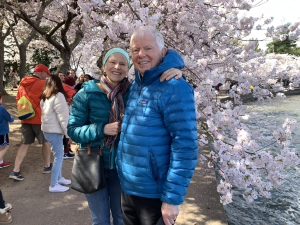Who Am I? What Do I Believe?
An introduction to my biography and my theological beliefs
Who Am I? A Short Biography
 As Unitarian Universalists, we like to say “revelation is not sealed” which means our theological beliefs about ourselves and the world can and do change.
As Unitarian Universalists, we like to say “revelation is not sealed” which means our theological beliefs about ourselves and the world can and do change.
My purpose here is to acquaint you with how I formed the beliefs that I hold and how they affect my preaching, teaching, and ministry.
Early beginnings
I was raised in a nearly all-white suburb of Akron, OH in a two parent family and with two older brothers. Ours was not a religious home. My mother was raised in rural Tennessee as an occasional drop-in visitor to a charismatic evangelical congregation, the beliefs she rejected early in her life. My father’s Hungarian-immigrant family raised him as a Catholic, but when, as an adult, whenhe became interested in science and engineering, he had a difficult time reconciling Catholic teachings with science and rejected church altogether.
My mother felt it was important for us to have some kind of exposure to formal religion, so I attended a Missouri-Synod Lutheran Church in Akron, OH until I was 13. I liked church, but even at an early age, had trouble with the theology. During a confirmation class, I argued with the pastor against the idea of predestination and eternal damnation, and was promptly asked to leave the class! I never went back. Thus ended my formal religious training until college.
 Finding Unitarian Universalism revealed my spiritual journey.
Finding Unitarian Universalism revealed my spiritual journey.
I began attending Kent State University in Kent, OH in 1979, unsure of what path life would take. I loved music, philosophy and the artistic and punk rock scene of the early 1980’s in Kent. When I was at Kent State University, I began attending the UU Church of Kent, OH. Although that church was tiny at the time, with about 30 people in worship, they ran the radical gamut from atheists, agnostics, scientists to new age believers to former Catholics, Lutherans, Methodists and gentle, non-judgmental Christians. It was at that church that I fell in love with the congregation and Unitarian Universalism. It was at that church where I first heard the call to ministry.
In 1989, I was accepted into Iliff School of Theology in Denver, CO. As I began seminary, I would have called myself benignly atheistic – not seeing any convincing evidence for God, but not objecting to the belief in God either. I enjoyed being a theological provocateur and devil’s advocate to my more conservative United Methodist colleagues. Little did I realize that my own beliefs were soon to change!
I was ordained by the First Unitarian Church in Denver, CO in 1983. My first call was to the small but mighty Westside UU Church of Knoxville, TN. Although they first met in a simple storefront building, I remember how much care they put into their welcome, and I fell in love with the congregation’s dedication and hard work.
It was there I found a small group of ecumenical colleagues who met weekly for Bible study. Although I had little interest in the Bible, I needed friends, so I went. A new world opened up for me. In those challenging and caring conversations, I discovered that I loved the stories in the Bible – their beauty and their terror; humanity grappling with the Divine, with that ineffable presence I came to know as God
I also discovered during those gatherings a Jesus who was not some cardboard cut-out Jesus, but one who came alive, as if for the first time. In 1999, I attended my first Unitarian Universalist Christian Fellowship Revival in New Orleans. There, I witnessed a way of being both a Christian and a Unitarian Universalist. At the same time, I became exposed to zazen “just sitting” and began a meditation practice which, along with other spiritual disciplines, have framed my spiritual life. By the beginning of my third ministry, at Westside Unitarian Universalist Church in Rocky River, OH, my theological beliefs were rooted in Christian Unitarian Universalism, with a humanist approach to Scripture and a Buddhist-inspired zazen sitting practice. I had officially become a hyphenated UU!
1.My Faith is rooted in an experience of the Holy.
 Theological labels can only take us so far. What matters more to me is how I – and how you – practice your faith. Over the course of my ministry, I’ve come to believe this: At the very heart of the human experience, is an experience of the Holy. The Holy is that animating presence for good that forms us from birth and welcomes us at death. We catch glimpses of it in between, and it pushes us towards service, sacrifice, and self-control. If we heed it, the Holy can shape us into lives that inspire, touch, and transform ourselves, our neighbors, and the world. Worship, as experienced through music, word, hymns and the arts, is one way we collectively experience the holy. It is the experience of “transcending mystery and wonder” which inspires us to live lives of meaning and purpose.
Theological labels can only take us so far. What matters more to me is how I – and how you – practice your faith. Over the course of my ministry, I’ve come to believe this: At the very heart of the human experience, is an experience of the Holy. The Holy is that animating presence for good that forms us from birth and welcomes us at death. We catch glimpses of it in between, and it pushes us towards service, sacrifice, and self-control. If we heed it, the Holy can shape us into lives that inspire, touch, and transform ourselves, our neighbors, and the world. Worship, as experienced through music, word, hymns and the arts, is one way we collectively experience the holy. It is the experience of “transcending mystery and wonder” which inspires us to live lives of meaning and purpose.
While I feel free to speak my understanding of truth from the pulpit, I never presume that everyone in the congregation shares my opinion. When speaking from another tradition other than Unitarian Universalism, it is my responsibility to both define terms and to provide an entree for those who don’t share that theological belief. Providing context, history, and background helps reassure members that I will, to the best of my ability, speak so that all may feel included and welcomed.
2. My Spiritual Practice is centered in Anti-Racist and Anti-Oppression work.
In this website, I explicate my understanding of what it means to practice anti-racist and anti-oppression habits of the heart. For now, I want to make it clear that for me, our anti-racist and anti-oppression work is both an aspect of social justice work, but more importantly, it is also an individual, on-going, never ending, spiritual practice. It is holy work I would be unable to successfully minister to a congregation who does not understand the importance of this practice; or who minimize the impact of white supremacy culture on Unitarian Universalist institution. Our on-going intellectual study and emotional and exploration is an important part of what it means for me personally, and for us as an institution to grow and to deepen spiritually.
3. My Ministry is Deepened in Collaboration
“Minister is all that we do–together” wrote Rev. Gordon McKeeman. Ministry is best done in collaboration with lay leaders, and, in larger congregations with colleagues and staff. When I receive kind words about something I’ve done in ministry – whether offer a sermon or provide leadership on governance, I remind folks that a minister is only as good as the congregation they serve. By that I mean that if my ministry is helpful or successful, it’s because of the relationships we’ve built together. It reflects the strength, health and vitality of that which already exists in a congregation. Working in a collaborative setting is both a joy and reflects my own theological orientation; we co-create the Beloved Community – together.
I hope this page gives you a sense of who I am, what I believe and if our mutual ministries may be a good match for one another.
 4. Marriage and Family are my roots and wings.
4. Marriage and Family are my roots and wings.
I have been married to Rev. Dr. Wayne Arnason since 1998. Before our moving to Cleveland to serve as co-ministers at the West Shore UU Church in Rocky River, OH, Wayne served as the minister of the Thomas Jefferson Memorial UU Church (now the UU Congregation of Charlottesville) for 16 years. We have a home in Charlottesville, VA, where Wayne is happily retired and working on various denominational and local projects. We are the proud parent/step-parent of Sarah Arnason and even more prouder grandparents to Runa and Ellis Moulard, born May 11, 2020. Wayne will continue to live in Charlottesville during my next interim, but making time for one another is important for both of us. In previous interims, I have worked from home one week a month; still being available for meetings, calls, support, etc.
I have a laundry list of hobbies I’d like to adopt when I reture, but I find that full-time interim ministry does not allow much time for much outside of ministry. However, when not working for the church, I enjoy reading novels, history, biographies, the New Yorker, Atlantic and Christian Century magazines, great television, and films. I’m a regular attender of the Gimli Film Festival and the Charlottesville Film Festival. I also run, meditate, pray, write poetry, read scripture and love a rich, dark cup of coffee.
